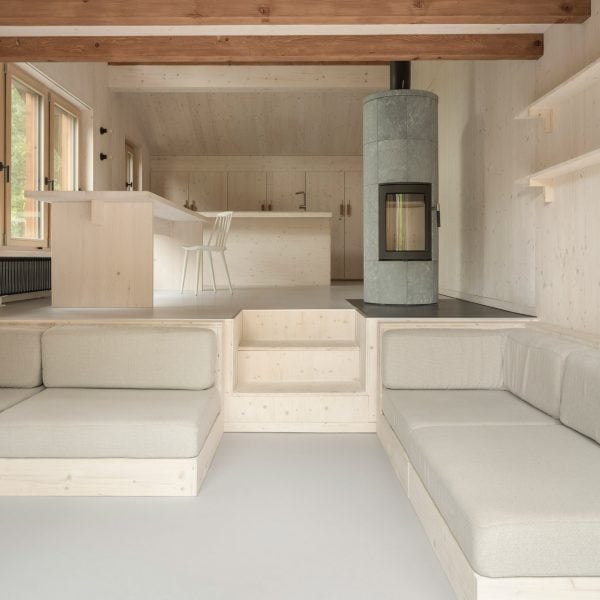Pale wooden finishes characterise the interior of the Perfect Day House mountain chalet that has been updated by Swiss studio Giona Bierens de Haan Architectures.
Located in Zinal, a mountain village in Switzerland, the home was overhauled with an interior arranged around a central communal living area.
In addition to the interior transformation, Giona Bierens de Haan Architectures replaced the chalet’s roof and added new openings while retaining the exterior, which featured a combination of the original facade and 1980s additions.
“The original chalet dates back to the 60s and was renovated twenty years later in the 80s,” the studio told Dezeen.
The construction was made of squared logs, a typical Swiss mountain construction in which massive wooden elements are embedded in the corners of the building to ensure stability, but the extension built in the 80s imitated this style without respecting the construction technique,” it continued.
“The chalet was therefore a construction that imitated an old traditional chalet without actually being one. It was a bit of a patchwork of different periods and construction techniques.”
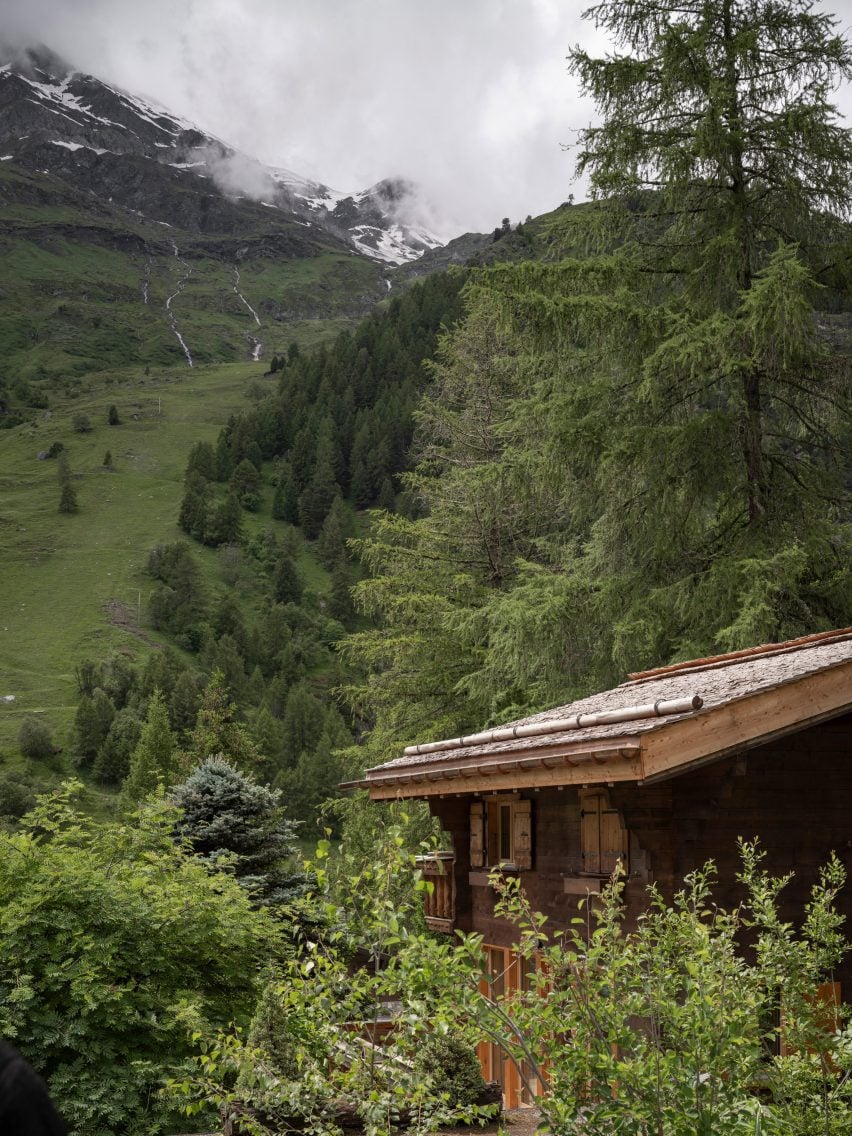
To comply with current standards, the studio insulated the full structure from the inside, allowing the home’s dark brown-log exterior to be fully preserved.
The traditional chalet, which is topped with a pitched roof, features stone wall cladding at its base, breaking up the fully wooden facade.
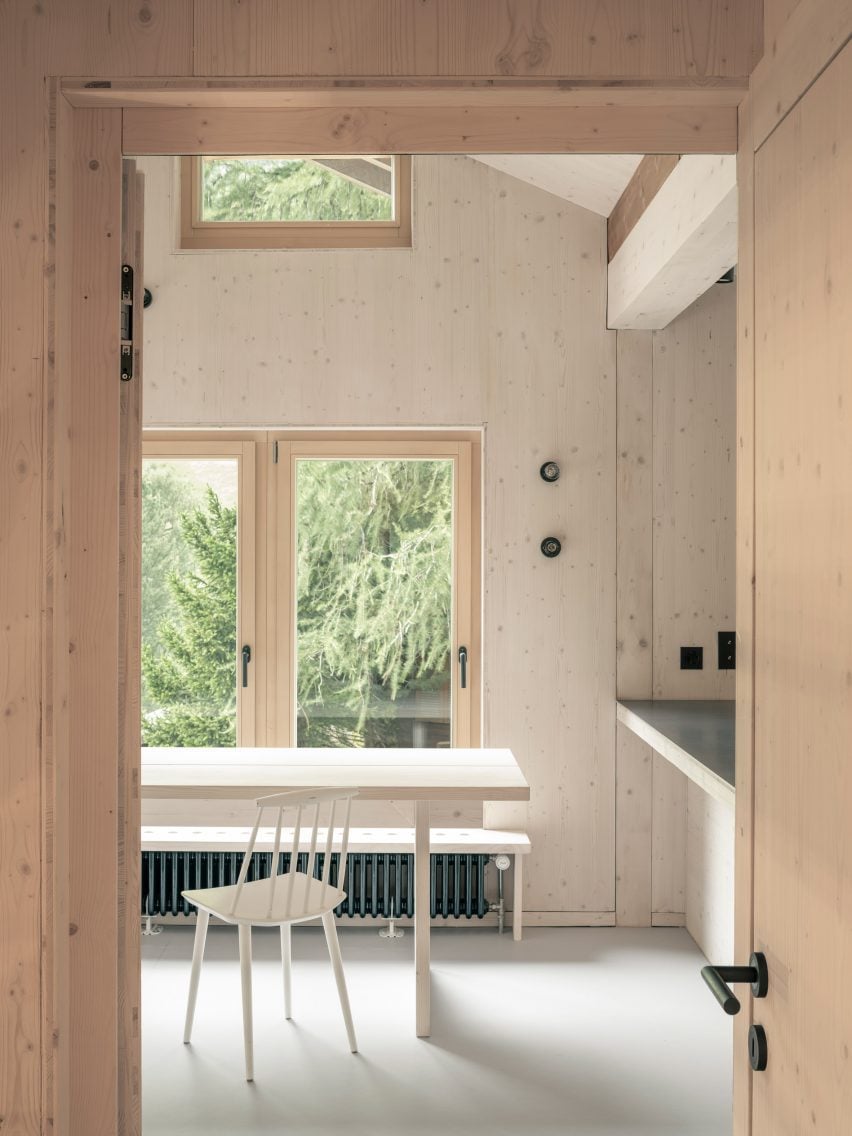
While adjustments to the home’s exterior remained minimal, other changes include the addition of new windows across the south-facing facade and the addition of a more traditional roof that uses a Swiss technique comprising thin wooden shingles.
“New facade openings were made to orient the interior of the house towards large French windows on the south face and to frame certain surrounding mountains from the inside,” said the studio.
“We replaced the old ceramic tile roof with a traditional wooden tile roof called ‘tavillons’.”
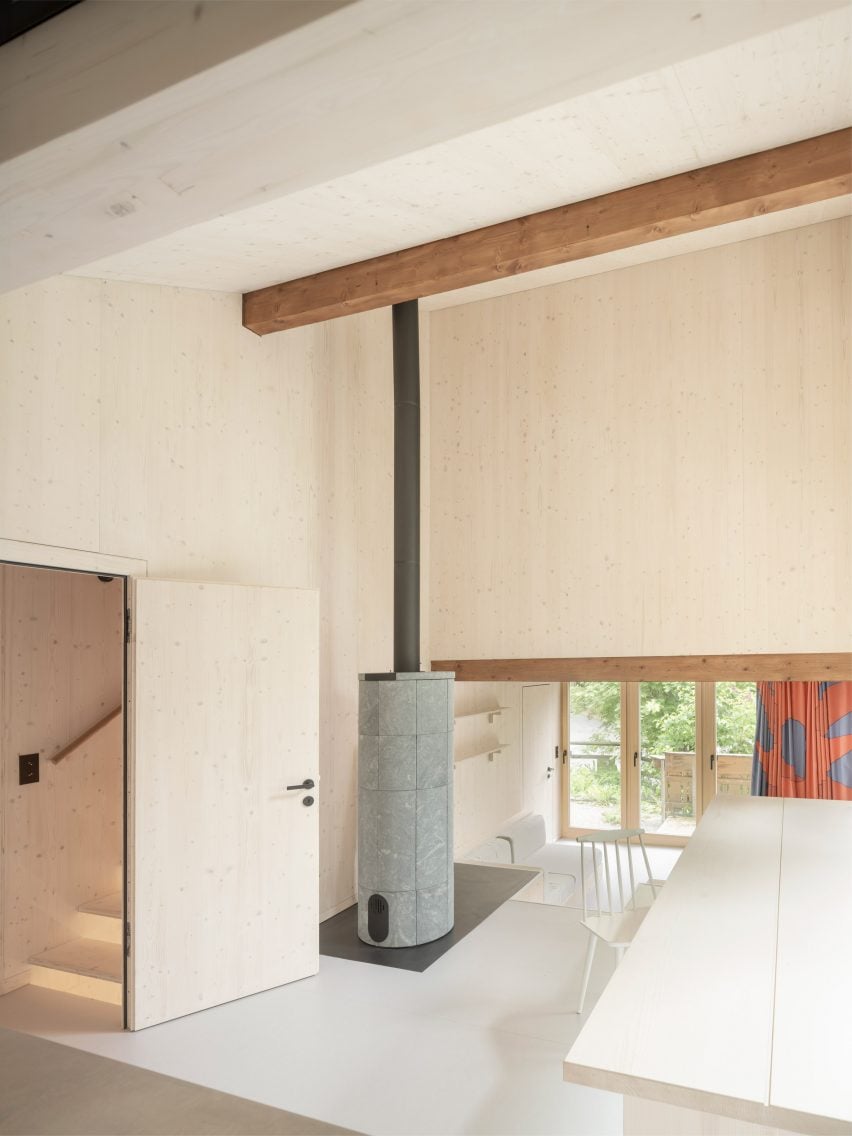
Inside, the entire interior of the home was replaced with a new arrangement that the studio hopes will encourage communal living.
“The [old] interior was typical of the period, with planks on the walls and ceiling, and tiled and carpeted floors,” said the studio. “The interior was completely hollowed out and redesigned, the interior spatiality of the house was rationalised to meet the needs of the clients.”
The spaces were arranged around an open-plan living space and kitchen that occupy almost the entirety of the ground floor aside from a stairwell and a terracotta tile-lined bathroom.
“The interior reorganisation of the house works in layers, clearly defining a main volume for daytime living, which is bordered by a thin strip giving access to the various floors and services,” said the studio.
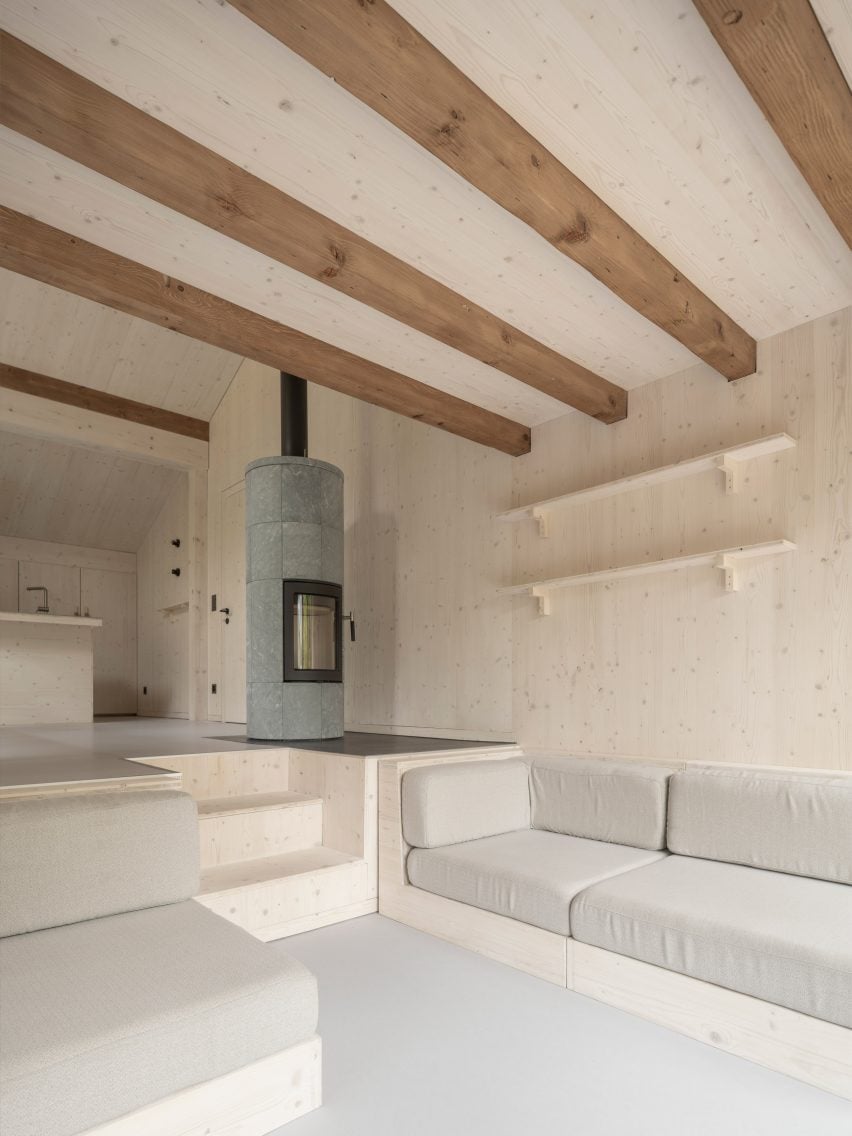
“This system allows residents to heat this main space with the wood-burning stove, and to consume as little energy as possible,” it continued. The heart of this chalet therefore highlights their way of life, which favours moments spent together as a community, with family or friends, by offering a large number of bed spaces in more compact and rational spaces.
Despite its open plan, the joined kitchen and living area features a degree of separation due to a split level arrangement, with a raised kitchen flanked by a sunken seating area.
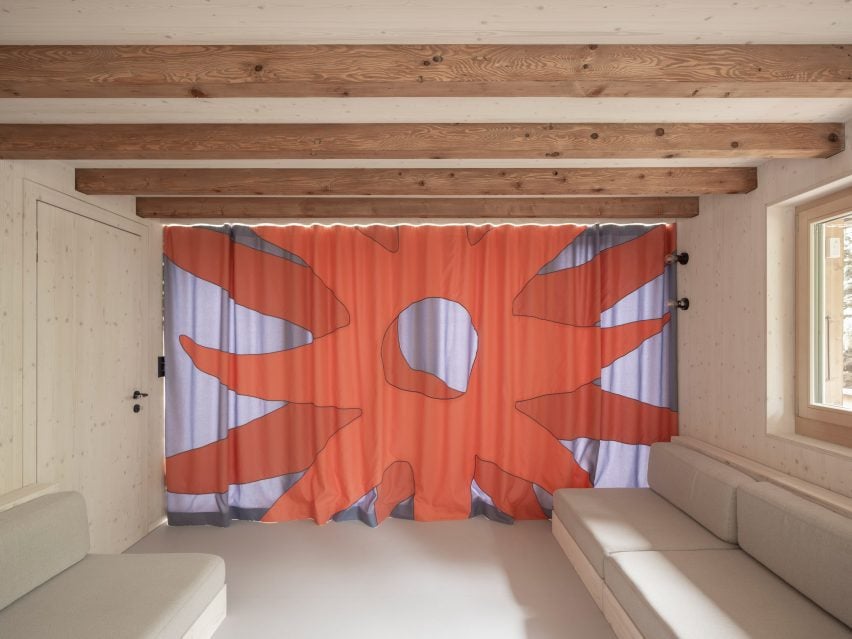
Like the rest of the home, both spaces feature light wooden walls and joinery as well as pale furnishings that give the interior a bright feel.
To the side of the open living area, a stairwell lined with pale wood leads up to the mezzanine level.
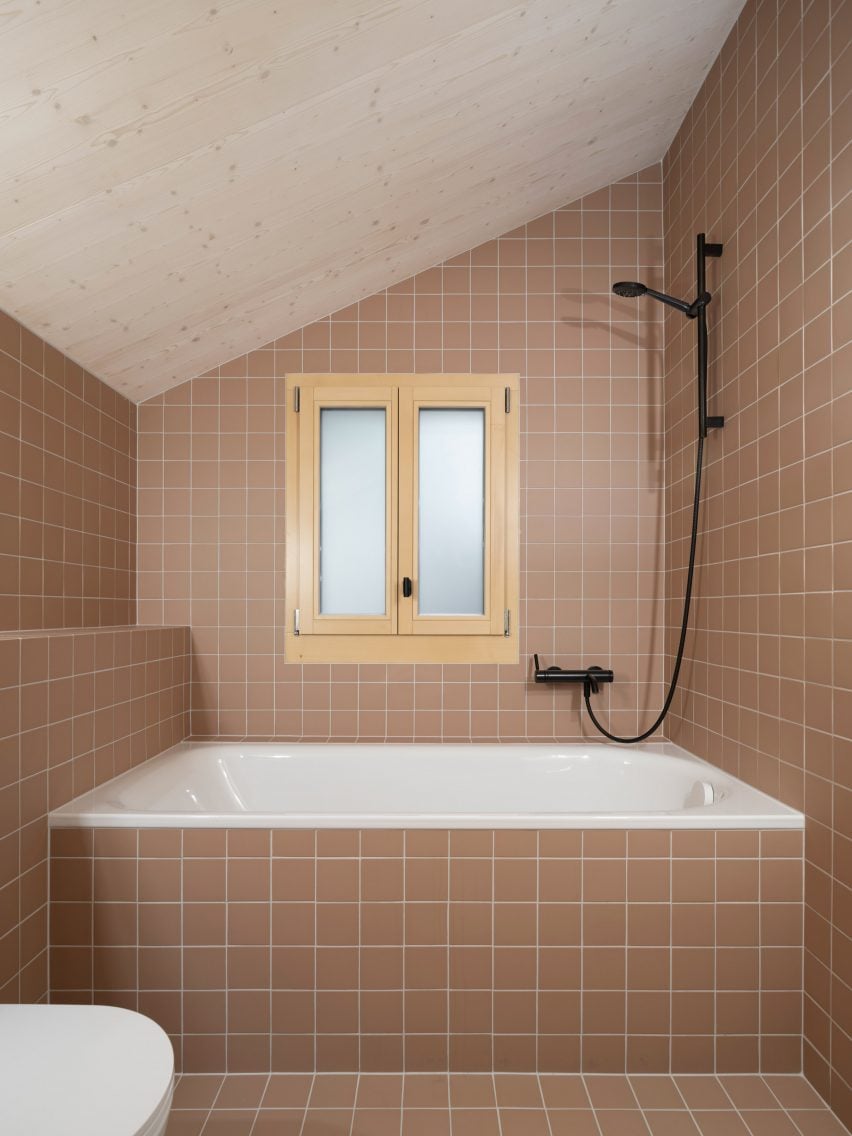
Topped with a pitched ceiling, the mezzanine features a sliding wall that can be left open or closed to form one shared bedroom or two separate rooms that each sleep two people.
From the main bedroom, a pair of glass doors leads to the balcony, which offers expansive views of the mountains.
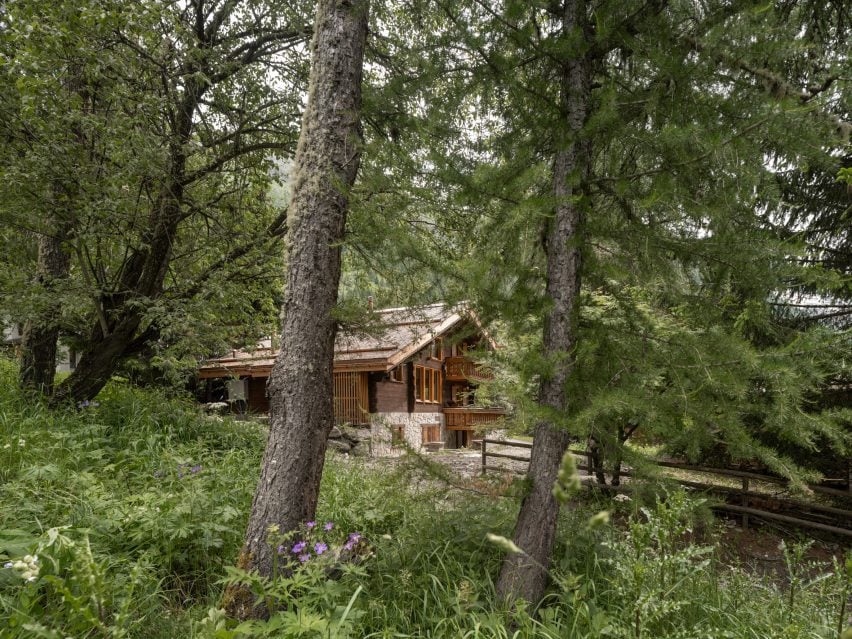
Downstairs, the basement houses two additional bedrooms, as well as another bathroom and smaller spaces that feature built-in cupboards and offer extra storage space.
Other chalets recently featured on Dezeen include a stilted “contemporary chalet” clad in cedar and a Quebec ski chalet topped with a curved roof.
The photography is by Dylan Perrenoud.

